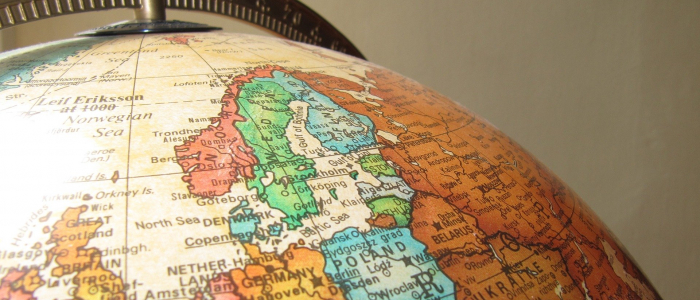Trade policy

Technology Industries of Finland calls for strengthening of rules based, open and fair trade policy
The economy of Finland is highly integrated in the global economy, international trade forming one third of its GDP. The European Union makes 60 percent of Finland’s total trade while China, USA and Russia rank amont the top outside EU-trading partners. With respect to trade, Finnish Technology Industry’s membership contributes over 50 % of the total exports. The largest industries are IT, machinery, vehicles, consulting and mining and metals production. In OECD comparison, high-technology manufacturing in Finland ranks second largest after Ireland.
Finland’s trade policy is part of the EU common commercial policy, defined jointly by the European Commission, the member states as represented by the Council, and the European Parliament. Under the common commercial policy, the Commission negotiates trade agreements on behalf of the EU members and on the basis of a negotiating mandate granted by the member states. Trade agreements negotiated by the Commission are only adopted once they have been approved by the Council and the European Parliament.
Rules based trading system mandatory for sustainable growth
The EU is the world's largest trading bloc. It provides the biggest export market for around 80 countries, and the EU Member States account for 16% of world imports and exports. Consequently, the EU has a considerable impact on third countries through trade, including the way in which international trade is conducted and how environmental and sustainable it is.
Growing tensions in the global trade between the main world trading powers has launched a protectionistic wave and represents a challenge to the European and Finnish commercial policy and should receive the full attention of our leaders.
CoOnsequnetly, Technology Industry of Finland strongly urges Finland and EU to pursue to strengthen its ambitious, open and rules-based trade policy. For EU and our membership this presents the prerequisite to enhance our competetitiveness and status as an attractive trading partners. The EU must defend its multilateral trading system by actively working to strenghten WTO as the vehicle for sustainable growth while simultenously developing its bilateral trade legistlation and agreements.
Trade promoting climate change mitigation and sustainable development
The Finnish Technology Industries sees world trade as a key vehicle for achieving the 2030 Sustainable Development Goals (SDGs). However, while the EU trade policy puts a great emphasis on trade being a vehicle for sustainable development, the past evidence demonstrates that a net positive contribution of the EU trade to sustainable development – going beyond the economic and addressing also the environmental and social aspects – is as yet far from being achieved. Therefore, there is an urgent need to find ways to make EU trade and its impact on global value chains more sustainable.
EU trade policy has react to the global asymmetries faster and better
In terms of EU trade relations with the outside world, a series of asymmetries working against our ambitious sustainability policies: foreign competitors are receiving massive subsidies, often without any obligation to repay, unlike in Europe; our European instruments, which should help to level the playing field in international competition, are slower and less powerful than those of our competitors; some foreign countries will emerge from the crisis earlier than the EU and will be able, often unfairly, to take EU industry’s market share, sometimes irreversibly.
Our view is that it is important to set aside the old controversies between those who advocate liberalism and those who advocate a certain degree of protection. Europe needs pragmatic measures, but which do not in themselves constitute a philosophical change, because we know that well functioning world trade will help everybody to fight the climate change and ensure sustainable growth to all nations.
We believe, that acting swiftly can be done already today by using EU’s newly reneowed trade defense instruments. It is a question of political will of applying the existing instruments without prejudice. EU’s compromised response to the Lack of reciprocity, unfair trade practices, WTO’s inability to enforce existing rules and to adopt new ones has to be revised in order to show the leadership in our targets and values.
Our view is that unless we can constructively adapt our trade poolicies and their implementation to the prevailing global scene, our industrial and economic future will be seriously threatened in all the areas which are the advanced guard of the new economy, e.g. digital, 5G telecommunications, transport (industry and services), medicines, etc. The measures adopted must of course help our industry to transform itself once it has emerged from the crisis, not remain inactive.
Another hot topic is supply chains, which have proven to be very fragile in key sectors. It seems to us that it is primarily up to European industry to reassess these risks, but the Commission should participate in such continent-wide reflections.
More information:
Kimmo Järvinen
Head of Brussels Office
Innovation and Economic policy
+358 43 825 7642